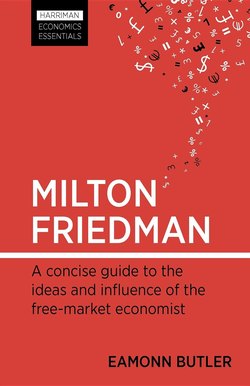Читать книгу Milton Friedman - Eamonn Butler - Страница 13
На сайте Литреса книга снята с продажи.
Ongoing impact
ОглавлениеToday, in countries as diverse as Estonia, China, India and Chile, we can see the benefits of the economic prosperity and personal freedom that have followed the adoption of Friedman’s ideas. Alan Greenspan summed up Friedman’s legacy, saying that: “His impact is not only on the 20th century but on the 21st, and I suspect ongoing.”
Friedman was engaged in all the late 20th century’s most bitter but pivotal intellectual conflicts over the role of government in economic and social affairs. For most of that time, his views were very much in the minority. From the upheavals of the 1930s, through the New Deal, to the economic ‘fine-tuning’ and planning of the postwar years, a belief deepened that government activism in the economy was both essential and inevitable – a belief given credence by the writings of the time’s most prominent economist, John Maynard Keynes. Further afield, the Soviet Union was dominating Eastern Europe and exporting international socialism to Asia, Africa and Latin America, in an onslaught that seemed unstoppable.
Though it often seemed hopeless to resist these sweeping movements, Friedman joined the intellectual battle with enthusiasm. He relished a good argument, and took on even his sternest opponents in a characteristically cheerful manner – his common-sense, optimistic style winning him many supporters. A naturally brilliant teacher and communicator, he spoke to the wider public in popular books, magazine articles and interviews, and through a widely influential worldwide television series, Free to Choose. He was the world’s leading exponent of personal and economic freedom.
